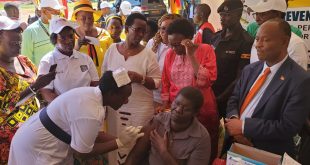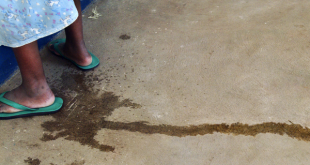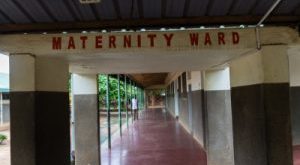Thursday 13, Oct 2022

By Lawrence Okwakol-Pallisa
The Kamuge town council local leadership in Pallisa district on Tuesday afternoon resolved to suspend the recommendation of youths going to Middle East for domestic employment (kyeyo).
The leaders reached to this resolution due to the rampant sale of land by most parents in the district to facilitate the process of their children’s travel and medical check ups, something they say is contributing to more poverty and homelessness to most families.
William Dedya the LC3 chairperson of Kamuge town council said the pressure youth give their poor parents to avail them with money demanded by companies dealing with labour export is forcing the vulnerable ones sell off their land to raise the required sum of money.
Dedya said an acre of land is being sold at Shs. 5, 000, 0000 to process for the passport, medical checkups and air ticket which leaves the family poorer as they will have no space for even subsistence agriculture.
“Our average acreage per household is two and if one is sold then it will affect others who remain, so I have agreed with the area councilors and LCs to stop giving introduction letters to these youth,” Dedya said.
The resolution by 54 local leaders was reached at Kamuge lukiiko hall in an engagement organised by Governance and Accountability of inter district network (GAIN) supported by Kondrad Adenuer Stifftung, a German international NGO.
Samson Emaasit Okurut the GAIN program officer said they give communities a platform to raise solutions to their local problems Okurut said it is unwise to spend shs.3, 000,000 to fly out when only Shs 1,000,000 can make one establish a local poultry unit which can yield 20 trays of eggs that fetch 200,000 instead of suffering for Shs. 900,000 monthly in Middle East.

“We are only not discouraging foreign labour export but even rural- urban migration because youth are going to cities to bake chapatti that has ready market in villages as well at no extra rental costs “, Okurut said.
Aaron Kabona, a resident of industrial area in Pallisa town council who graduated with a bachelor’s degree in journalism and holds a diploma in accountancy said if young people accept to start with small capital, they will prosper like him.
Kabona said he started baking chapatti after his graduation with a capital of 30,000 but now employs 20 boys who fetch for him 200,000 daily as he is busy in his poultry unit.
“I no longer look for jobs because am an employer and from my birds I get 20 trays yielding for me 220,000 daily. I actually see no reason of investing 3,000,000 to go abroad to be harassed and doing donkey work,” Kabona said.
Ignatius Okoboi, the senior community development officer in Pallisa said the decision reached by kamuge leadership was healthy but called for more youth engagement so that the mindset of the young people in the district can change.
“The work youth ignore here like washing clothes, trimming compounds is the very jobs they spend heavily on to be abused for two years,” Okoboi said.
He added that the problem is not only foreign exploitation but even here in Uganda people should stop rural-urban migration because production is best done in the country side.
The rampant sale of land in Teso is known to be one of the major causes of conflict in society as families start to fight over the remaining small pieces or due to complaints of non inclusive decisions during land transactions. This in most cases has led to loss of life and property in the past.
Back in October 2018, the German government and the Lands Ministry came in to resolve land disputes and demarcate land in Soroti and Katakwi Districts which were most affected by then. The German International Cooperation (GIZ) in collaboration with the Ministry of Lands, Housing and Urban Development, including local governments as well as Ateker Women Land Rights Partners (AWOLARIP) implementing the Responsible Land Policy project (RELAPU) in the two districts.
They used the systematic approach of land demarcation where boundary trees known locally as Ejumula and Eligoi were planted with the guidance of a tape measure and a machine. This over time has reduced land wrangles in the Teso region.



